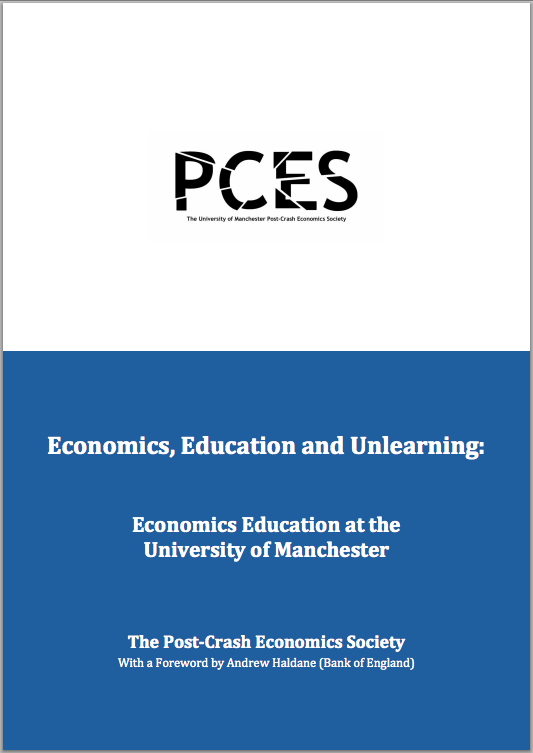The Revolution in Economics?

The world has changed, the syllabus hasn’t – is it time to do something about it?
The Post-Crash Economics Society is campaigning for the university to update its economics curriculum to reflect the recent financial crisis.

Their new report Economics Education and Unlearning is a compelling analysis of the failings in economics education and it claims that the syllabus in its current state requires “significant reform”.
“If economics education isn’t fit for purpose, it will not produce the skilled economists we need and society will suffer as a result. A rethink of the discipline is required or else failures in economics, such as the Financial Crisis, will inevitably be repeated.”
The report attacks “the self-reinforcing monoculture of economics, which makes it easier for professors to believe that their way is the only way to do economics or at least that its the only valid way.”
It features an excellent foreword from Andy Haldane, the Bank of England’s Executive Director for Financial Stability.
“The agenda set out in this Report is exciting and compelling. While not exhaustive, it begins to break open some of the economics discipline’s self imposed shackles. Some of this is discovery of the new – for example, in the area of evolutionary, neuro and behavioural economics. But a large part is rediscovery of the old – or, in some cases, dusting down of the neglected – for example, in the area of institutional economics, economic history and money and banking.”
“Answering effectively public policy questions of the future requires an understanding of the past. It also requires eclecticism in the choice of methodology, a knowledge of political economy, an appreciation of institutions, an understanding of money and banking.”
Andy Haldane
The Post-Crash Economics Society enjoys the support of prominent economists from across the political spectrum including Lord Robert Skidelsky, Ha-Joon Chang and Stephen Davies. Articles published about PCES in the Guardian started a debate on the blogosphere that reached as far as Paul Krugman. They have since been discussed by the Financial Times, the Economist, the Times, the Washington Post, the BBC.
Download full report here:
Economics Education and Unlearning